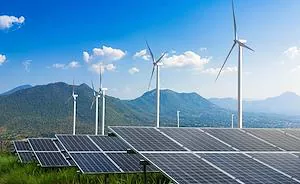The Province of Buenos Aires Regulates the National Regime of Renewable Distributed Energy Generation Incentive
The newly issued decree appoints the authority responsible for applying the provincial law on distributed generation and creates the Registry of Users-Generator of Renewable Energy in the Province of Buenos Aires.

The Decree No. 2371/2022, published in the Official Gazette of the Province of Buenos Aires on January 11, 2023, regulates Law No. 15325, through which the Province of Buenos Aires adhered to the National Renewable Distributed Energy Generation Incentive Regime.
Background
On November 30, 2017, the National Congress passed Law No. 27424, which approved the Incentive Regime for Renewable Distributed Energy Generation connected to the Public Electricity Grid. Since this incentive regime regulates matters related to the services provided by distribution companies which, as a rule, are not subject to federal jurisdiction, section 40 of Law No. 27424 invited the provinces and the City of Buenos Aires to adhere to this national regime and issue the necessary rules and laws to enforce it.
Thirteen provinces and the City of Buenos Aires adhered to the regime. The Province of Buenos Aires did so through the Law No. 15325, passed on April 21, 2022.
Scope of the national renewable distributed energy generation incentive regime
Distributed generation can be defined as the production of electric energy of reduced capacity connected to the distribution network and aiming at self-consumption, but with the possibility of injecting surpluses to the grid.
The Law No. 27424 adds to that definition the use of renewable energies and the user-generator’s compliance with the technical requirements established by the regulation.
Pursuant to Law No. 27424, each distributor must estimate the compensation and manage the price users-generators feed to the grid under the net balance billing model established in the law. Thus, the user-generator compensates with its distribution company the electric energy generated against the electric energy used. Eventually, the user-generator could receive a return, provided there is monetary surplus resulting from the kilowatt-hours it fed to the grid and that the applicable requirements are met.
Law No. 27424 establishes that the feed-in tariff (tarifa de inyección) must be set in accordance with the seasonal price corresponding to each type of user that distributors pay in the wholesale electric market.
Further, the Law No. 27424 created an incentive regime including tax benefits for the acquisition and national production of equipment for distributed generation.
Incentives for distributed generation in the Province of Buenos Aires
The Law No. 15325 also established that users-generators will be exempted during a 12-year term from gross income tax arising from the surpluses fed to the distribution network and stamp tax applicable to agreements between them and the distribution companies in connection with renewable distributed energy generation.
Main provisions of Decree 2371
Decree 2731 appointed the Ministry of Infrastructure and Public Services as the enforcement authority for the Law No. 15325. The Ministry must determine the technical, legal, economic, contractual, and tariff related matters, as well as any other matters necessary to enable renewable distributed generation in the Province of Buenos Aires.
The Decree 2371 also created the Registry of Renewable Energies Users-Generators in the Province of Buenos Aires (RUGER). The users-generators who seek to obtain the provincial tax benefits established by Law No. 15325, special lines of credit, or other future benefits must register before the RUGER.
This insight is a brief comment on legal news in Argentina; it does not purport to be an exhaustive analysis or to provide legal advice.